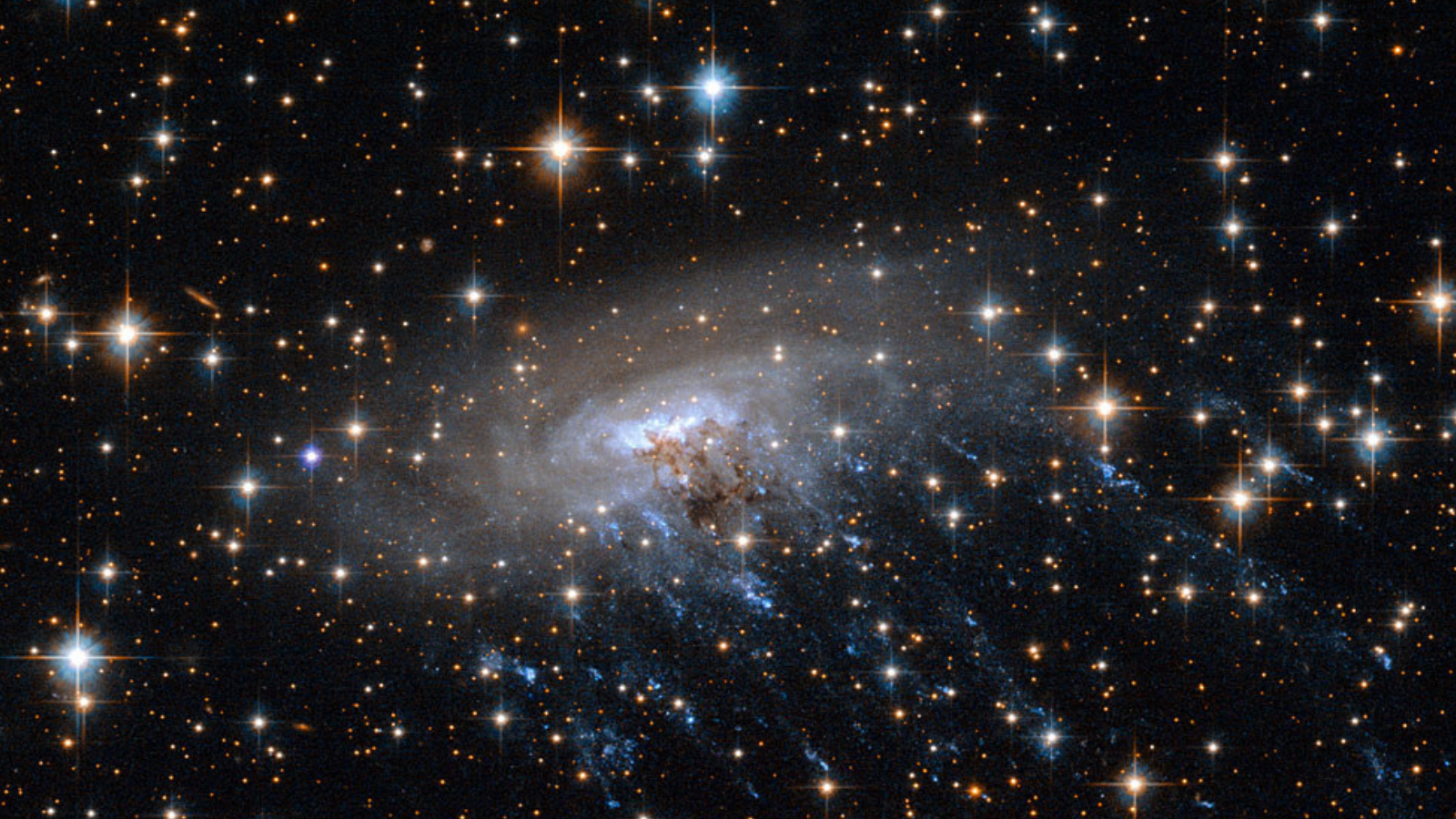Panel: NASA Needs Both Robotic and Human Missions, But Equity Missing
Breaking space news, the latest updates on rocket launches, skywatching events and more!
You are now subscribed
Your newsletter sign-up was successful
Want to add more newsletters?

Delivered daily
Daily Newsletter
Breaking space news, the latest updates on rocket launches, skywatching events and more!

Once a month
Watch This Space
Sign up to our monthly entertainment newsletter to keep up with all our coverage of the latest sci-fi and space movies, tv shows, games and books.

Once a week
Night Sky This Week
Discover this week's must-see night sky events, moon phases, and stunning astrophotos. Sign up for our skywatching newsletter and explore the universe with us!

Twice a month
Strange New Words
Space.com's Sci-Fi Reader's Club. Read a sci-fi short story every month and join a virtual community of fellow science fiction fans!
COLORADO SPRINGS, Colorado - Exploration of space now and in the future depends on both human and robotic skills. However, according to a leading scientist, there is need to fortify and rebalance the funding between the two.
The long-standing argument regarding the merits of machinery over flesh and blood exploration was aired here at the 22nd National Space Symposium (NSS), staged by The Space Foundation in Colorado Springs, Colorado. The group conducts the annual symposium, being held April 3-6 at The Broadmoor Hotel.
Moderating a special session on autonomous and crewed space exploits, Neil deGrasse Tyson, Astrophysicist, Rose Center for Earth and Space Board Member, said the "and" part is not a fully expressed word in today's human and robotic space exploration of the solar system.
Panelist Jim Kennedy, Director of the Kennedy Space Center in Florida, backed the hand-in-hand attributes of robotic and human exploration. "You can't have one without the other...it is clearly both," he said.
Kennedy outlined the work of over 15,000 employees at the Kennedy Space Center and his $1.6 billion budget. That workforce is busy transforming the center in preparation for enabling President Bush's Moon, Mars and beyond vision.
Human exploration is not without risk, Kennedy said, pointing to 17 individuals that have died in the Apollo 1 fire, and the Challenger and Columbia space shuttle tragedies. He noted that out of the ashes of Columbia, the NASA's long-term vision became national policy.
While work moves ahead on the Crew Exploration Vehicle and the Cargo Launch Vehicle, Kennedy said there will be a "marriage in space"--one of robots helping humans as they sojourn beyond low Earth orbit.
Breaking space news, the latest updates on rocket launches, skywatching events and more!
Legacy of accomplishments
Not in a "body slamming" mood was panelist Firouz Naderi, Associate Director, Programs, Project Formulation & Strategy at NASA's Jet Propulsion Laboratory (JPL) in Pasadena, California. He called the debate of robots versus humans more distracting than productive.
"A robust space program needs both enterprises," he said. Both have a legacy of remarkable accomplishments, he said.
Robots are extensions of human beings, Naderi said. Robotic emissaries are now busy at work on Mars and at Saturn, among other locales throughout the solar system.
Thanks to the eyes of robots, the cosmic neighborhood is now far more familiar, Naderi advised. In the future, looking for Earth-like planets, detecting gravitational waves, sending a hydrobot down through the icy face of Jupiter's Europa into a possible ocean, and ballooning about the hellish atmosphere of Venus--all these and other projects are possible, he said.
Also, fragile Earth demands 24/7 scrutiny via robotic craft "to hit us upside the head" and raise red flags in safeguarding the planet's overall health, Naderi said.
Tactical error
Kennedy said that NASA spending on science is in the range of 32-33 percent of the space agency's overall budget, a figure that seems appropriate at the moment. There is need, he added, to articulate to the public just how much science is underway on within the International Space Station.
However, Naderi urged that there is need to fence off the science budget, to avoid being raided for human exploration needs. "It's the only way to keep peace in the family I think."
At NASA Headquarters, Naderi said, the bureaucratic split between the exploration division and the science division is a "tactical error" that unnecessarily pits the communities against each other.
Given that U.S. astronauts are not expected to revisit the Moon until 2018, Naderi underscored the long public wait for such a moment. Meanwhile, robotic science missions to the Moon will sustain public interest in lunar exploration prior to human footprints on the Moon once again.
Naderi said that a healthy space science budget--if boosted back to one-third of the overall NASA budget--"we could do wonderful science." He said there needs to be a fencing off of science funding...and "stick to it".

Leonard David is an award-winning space journalist who has been reporting on space activities for more than 50 years. Currently writing as Space.com's Space Insider Columnist among his other projects, Leonard has authored numerous books on space exploration, Mars missions and more, with his latest being "Moon Rush: The New Space Race" published in 2019 by National Geographic. He also wrote "Mars: Our Future on the Red Planet" released in 2016 by National Geographic. Leonard has served as a correspondent for SpaceNews, Scientific American and Aerospace America for the AIAA. He has received many awards, including the first Ordway Award for Sustained Excellence in Spaceflight History in 2015 at the AAS Wernher von Braun Memorial Symposium. You can find out Leonard's latest project at his website and on Twitter.
